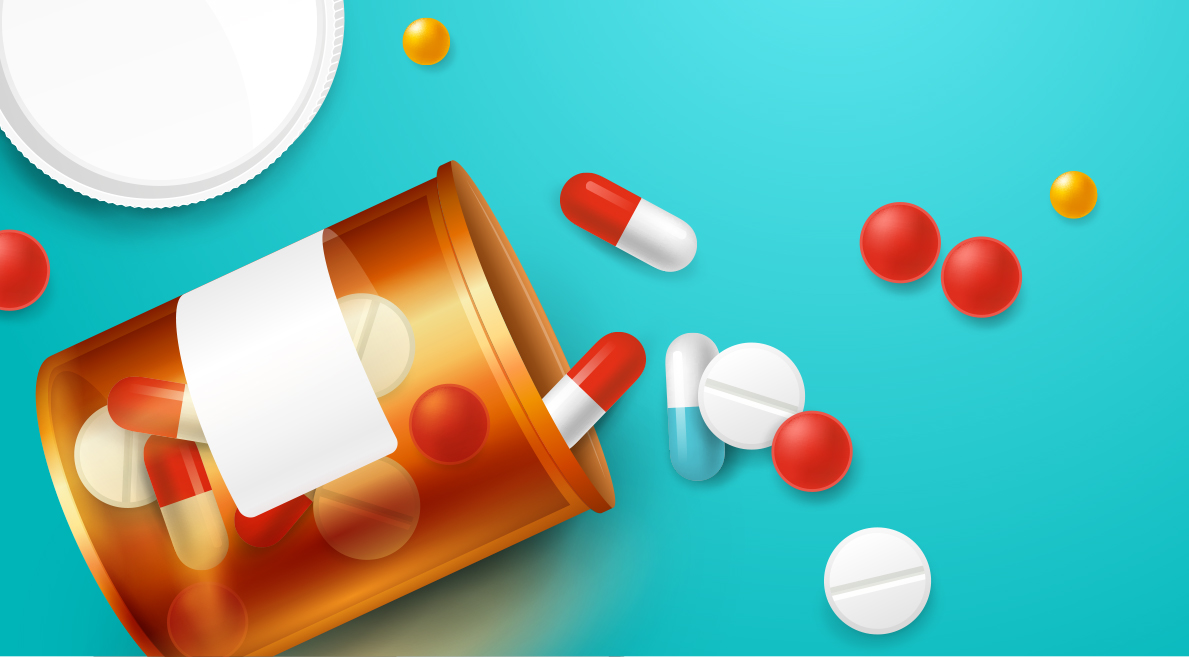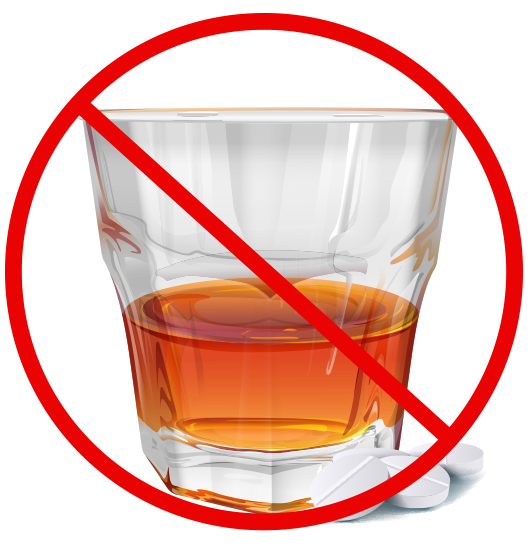Rx Drugs 101
In the midst of a national opioid epidemic, COSAP wants to help students be safe and feel safe. With so many changes going on in your life, college is an important time to start incorporating safe medicine practices in your life.

Why Lock Up Your Medication?
UNM Policy
If taking prescription drugs, you are personally responsible that you are not a safety risk for yourself or others. Store your medications in a secure place, don’t share your medication under any circumstances, and properly dispose of expired or unused medicines.
Your Medicine is Your Business
Most UNM students are smart and safe with Rx drugs! Over 93% of UNM students don’t take Rx drugs that are not prescribed to them. Even if you trust your friends and roommates, college living areas can be busy places. Regularly counting your supply and locking up your Rx drugs can help prevent theft from friends and strangers.
Follow the 3 Rx “R’s”
1. Respect the power of medicine and use it properly.
2. Recognize that all medicines have risks along with benefits and that risks increase dramatically when misusing and abusing.
3. Take responsibility for learning how to take your prescription drugs safely and appropriately.
What is Misusing Medication?
• Failing to take as directed.
• Taking less or more than prescribed.
• Taking it for different reasons than prescribed.
• Sharing your prescription or taking someone else’s prescription.
What is Abusing Medication?
• Taking more than prescribed.
• Using to get high.
• Using without a prescription.
Safe Medicine Practices
- Always take medicine as prescribed.
- NEVER mix medicine and alcohol.
- Do not share your medicine with others.
- Keep medicine in sealed, tight container.
- Never take damaged medicine.
- Check the expiration date of medicine.
- Dispose of medicine by sealing it in a bag with an unpalatable mixture or take it as is to a dropbox.
- If taking prescription painkillers, keep Naloxone on hand and know how to use it.
For more information about prescription painkillers, check out our Opioids 101 brochure.
What Should Be Done During a Possible Overdose?
- Knowing what’s in drugs can help with the decision of how much and how best to use them and if you do not know, then test them.
- Look for signs of a possible overdose such as being nonresponsive or turning blue.
- Give the person Naloxone to reverse the effects of an overdose.
- Do not pour cold water on the person as this can advance the overdose.

Don’t Mix Alcohol & Rx Drugs
Medicine labels warn you not to drink alcohol for a reason! Mixing alcohol and medicines puts you at risk for dangerous reactions in your body. Combining alcohol with certain medications can cause nausea and vomiting, headaches, drowsiness, fainting, or loss of coordination. It also can put you at risk for internal bleeding, heart problems, and difficulties in breathing. In addition to these dangers, alcohol can make a medication less effective or even useless, or it may make the medication harmful or toxic to your body.
Why You Shouldn’t Mix Alcohol and Rx Drugs:
- Some medicines already contain alcohol.
- Medicines can have many ingredients - multiple ones can interact with alcohol.
- Medicine can interact with alcohol even if not taken at the same time.
- The bodies of women and the elderly are more at risk for harmful alcohol-medication interactions as well as organ damage.
What Happens When Alcohol and Rx Drugs Mix:
- Alcohol stops medicine from working by competing for the same set of metabolizing enzymes in the body.
- Metabolic enzymes stay activated by alcohol even when no longer consuming alcohol, which will continue to prohibit medicine from metabolizing.
- Enzymes that are activated from alcohol can transform some medicine’s ingredients into toxic chemicals that cause organ damage.
- Some medicines affect the metabolism of alcohol, which increases the potential for dangerous levels of intoxication.
- Alcohol increases the inhibitory effects of sedative and narcotic medicines in the brain.
